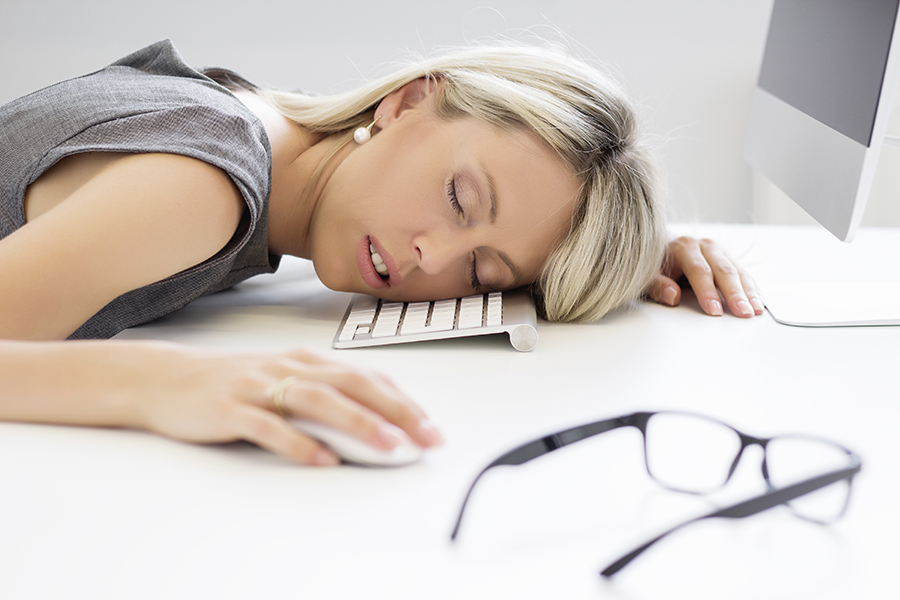
(This content is being used for illustrative purposes only; any person depicted in the content is a model)
Author: Justin Mckibben
Enough sleep? Really, is there even such a thing? I swear I could take nap right now, but I guess I’m here to work and stuff…
Some say a well spent day brings happy sleep, others say there ain’t no rest for the wicked. Well it seems to be a fact of our society today that nobody gets ‘enough’ sleep… nobody. The search for enough sleep is now a collective obsession, something that we talk about throughout the day and beg for first thing every morning. Snooze button is the new life-support.
But while some of us try to get home earlier and lay down quicker, others are relying on downers and stimulants to regulate their rest, and that is so much more dangerous than it is effective.
Health Risks of Insomnia
Sleep deficiency has all types of negative impacts on the world. It causes various problems such as:
- Fatal road accidents
- Costly drain on the workforce
- Struggling students at school
- Depression
- Anxiety
- Substance abuse
The list goes on and on, and while other issues like ADHD, obesity, and bad skin used to be attributed to diet, new studies suggest they might be due to insomnia. A recent study determined that weight gain might have less to do with what we eat, and more with the time of the day we eat it, which can be controlled by our sleep patterns.
We have almost taught ourselves into a tired existence sustained with coffee, energy drinks and prescription medication, and the insanity of insomnia is changing our world.
Under-Over of Average American Sleep
According to some experts the average full sleep-cycle these days ranges from 70 to 120 minutes, not eight hours, while we train our kids to sleep for long period of time. When considering the fact we are taught as children to sleep on a specific schedule, it becomes apparent that sleep as we know it is actually a learned, social habit more so than an innate biological function.
Sleep averages and habits are different around the world depending on the culture.
- In many Asian countries, co-sleeping among family members is the norm.
- In New Guinea, it’s common for men to sleep in male sleeping quarters; women and children are on their own.
- Mediterranean countries have workdays, meals and bedtimes that start later than the average American.
The household has another influence on our sleep. There are various aspects of our family and home lives that contribute to the struggle today, such as:
- Larger number of people live alone.
- Multi-generational families sharing a home have become a norm.
- Separately sleeping couples are increasingly common.
Naps Not Drugs
As mentioned before, it has become too common these days that we rely on medications, prescription or otherwise, to help us get the sleep we so desperately need. As a society we are openly accepting a life-style where we pump ourselves full of uppers in the morning (how much do we love our coffee… yes, yes we do) and a lot of us winding down with downers at night to help us get to sleep.
But this isn’t making the problem any better. Just like we trained ourselves to sleep 8 hours instead of 2 separate sleep periods, and just like we have trained ourselves to sleep different times for different shifts or different cultures, we are training ourselves to be exhausted and artificially energized, which is doing some serious damage to our bodies. That is especially true for the drug user who takes a stimulant in the morning and an opiate in the evening with the excuse that sleep is only obtainable that way.
How do we change this in the search for enough sleep? Well one thing we should definitely take into consideration is something most of us have known about since we were infants… nap time! Some experts say that we had it right with the ancient way of dispersing our sleep throughout the day, giving ourselves time between tasks and activities to recharge. Some suggest that instead of relying on a chemical conditioning to inappropriate sleep patterns, maybe we should try and find a way to rest over selves throughout the course of a day. I’ll advocate for that.
So maybe next time you want to pop a pill or buy a jumbo-amplified can of liquid poison energy, maybe just take a nap. As a matter of fact, as I yawn while writing this, just put your head on the keyboard at work and drift awayyydfhghgdkjghd.
All jokes aside, getting a healthy sleep regiment for yourself is important to your mental and physical health, and while it is relevant to note that our culture and our careers take a toll, it is still possible to give yourself some breathing room and rest. In active addiction this can be next to impossible, and if you get any sleep it’s definitely not quality sleep, but cut yourself a break and get the rest time you need to change. If you or someone you love is struggling with substance abuse or addiction, please call toll-free 1-800-951-6135